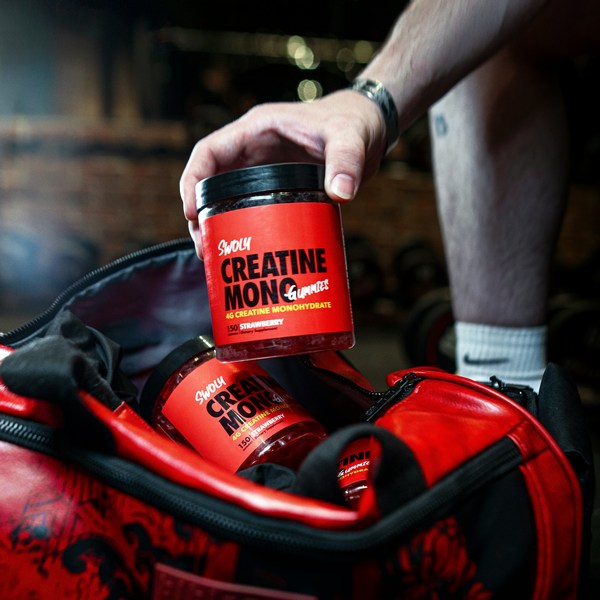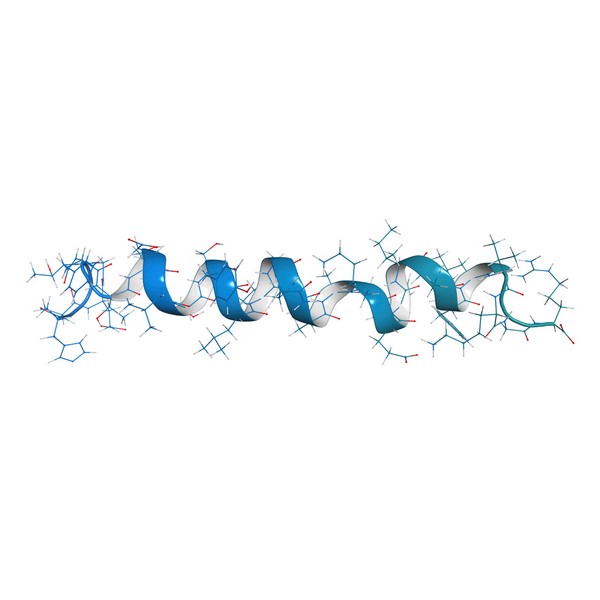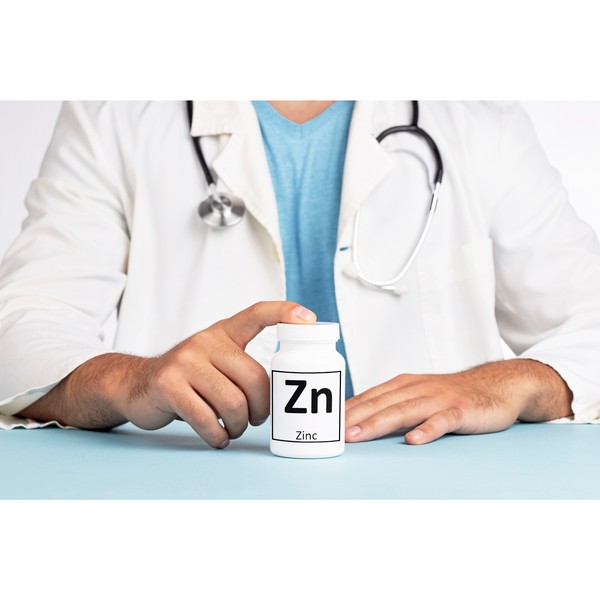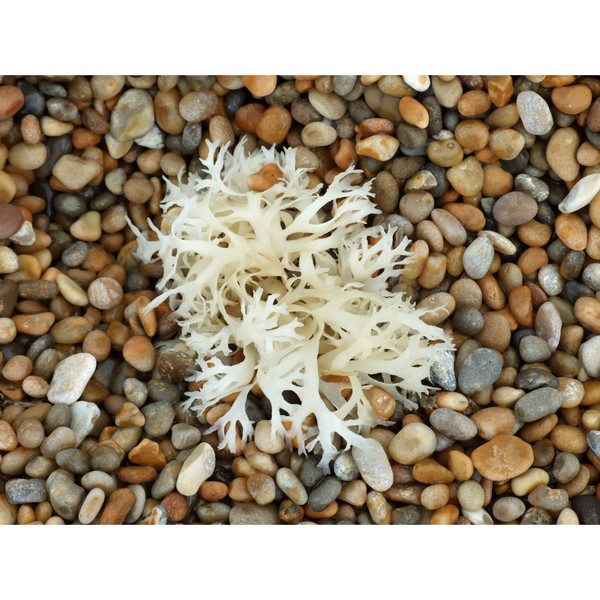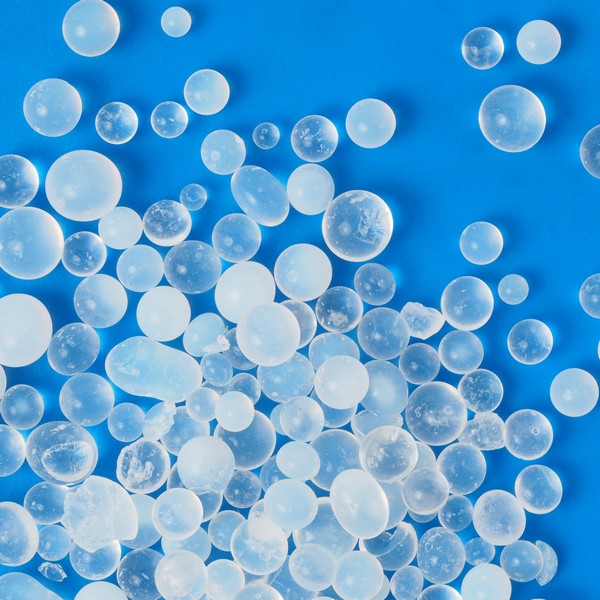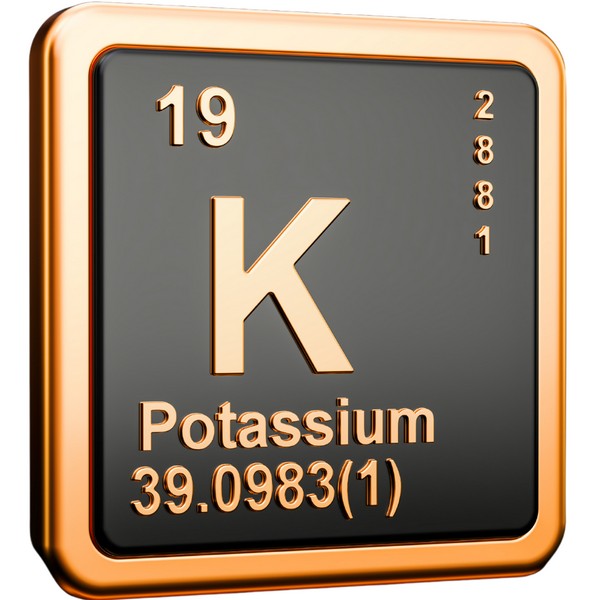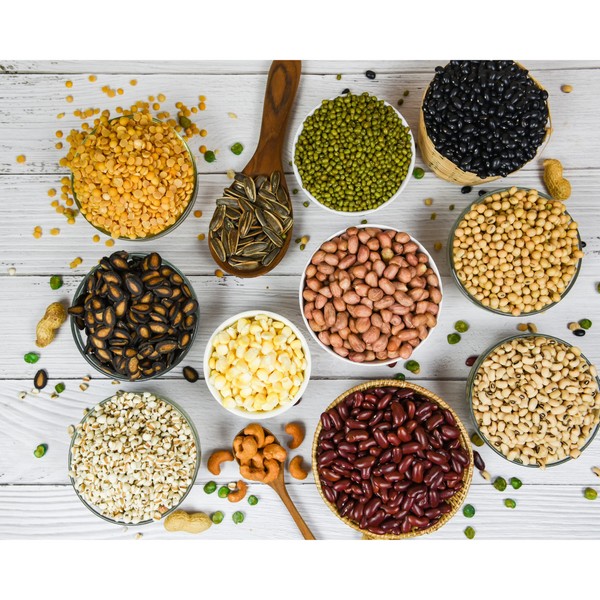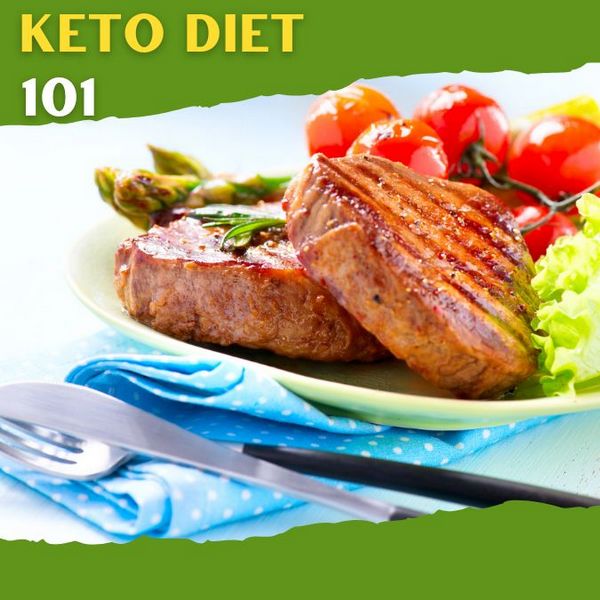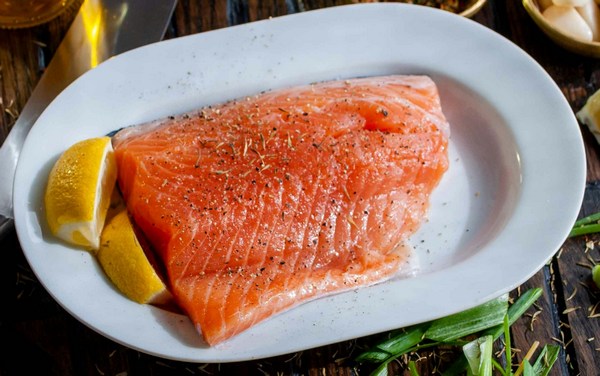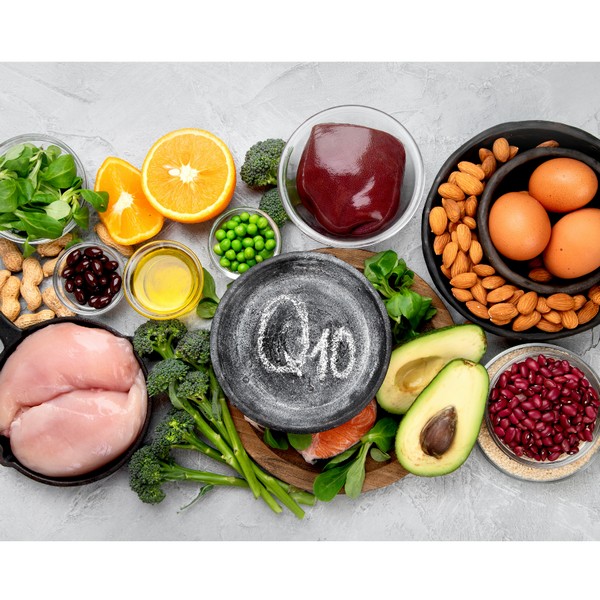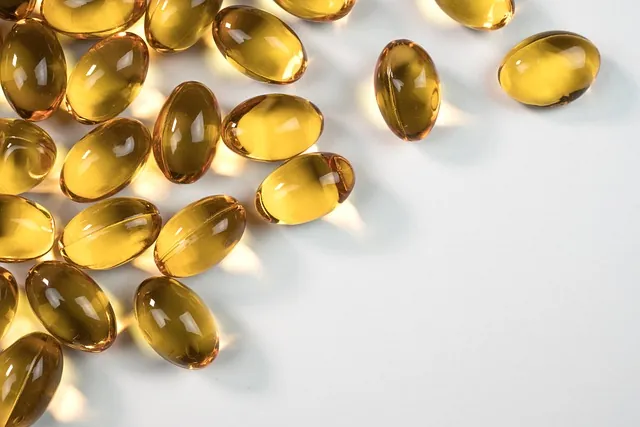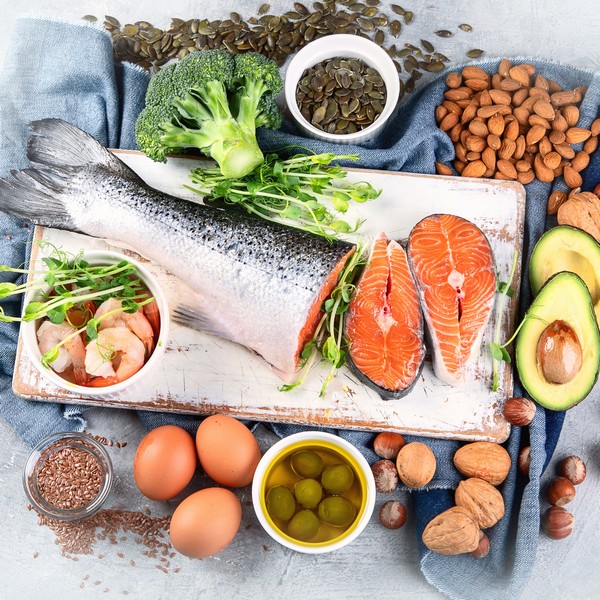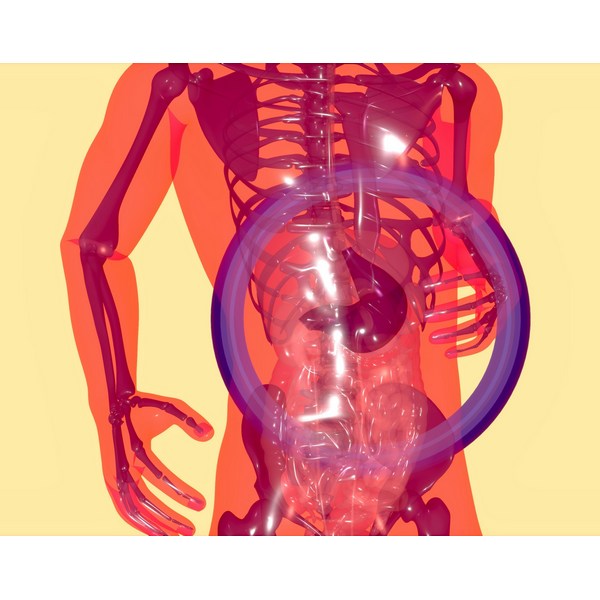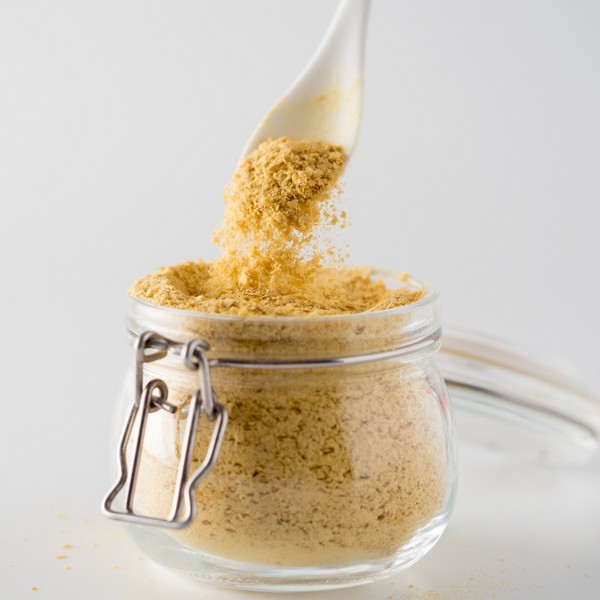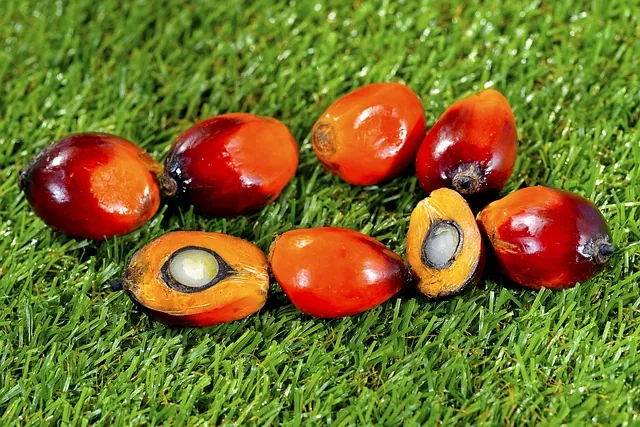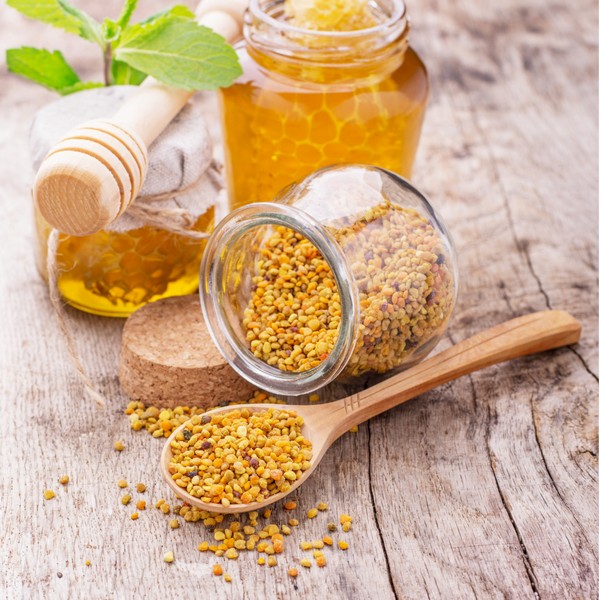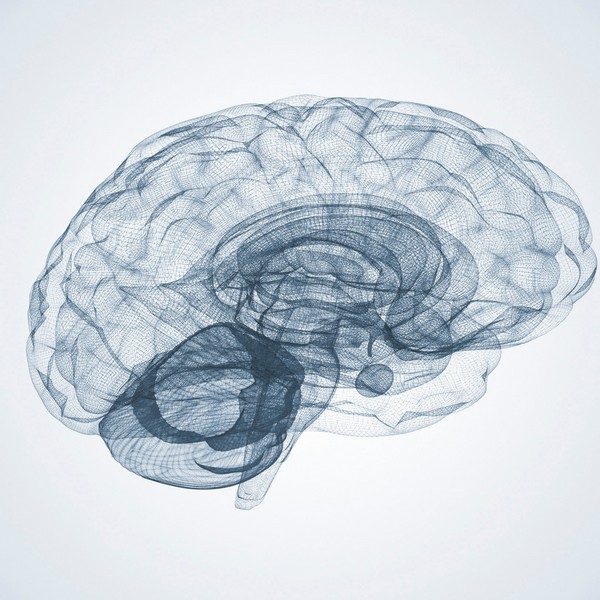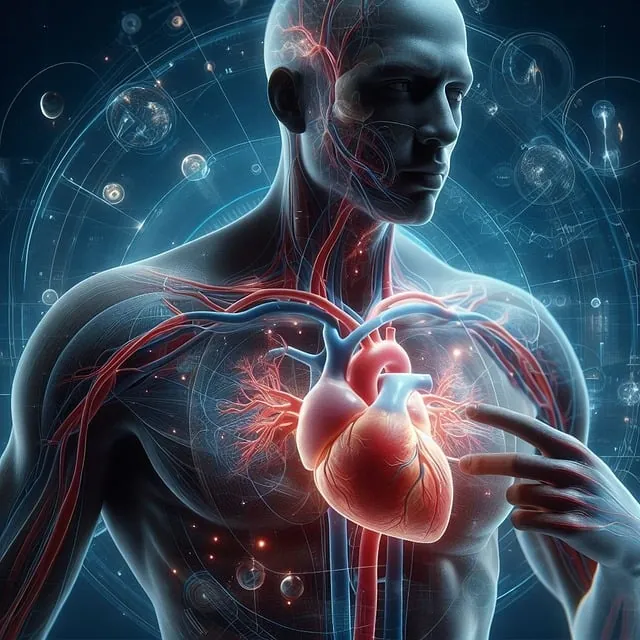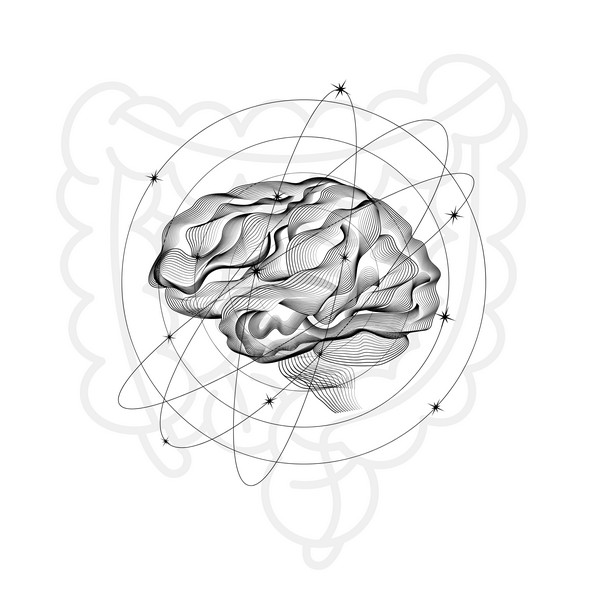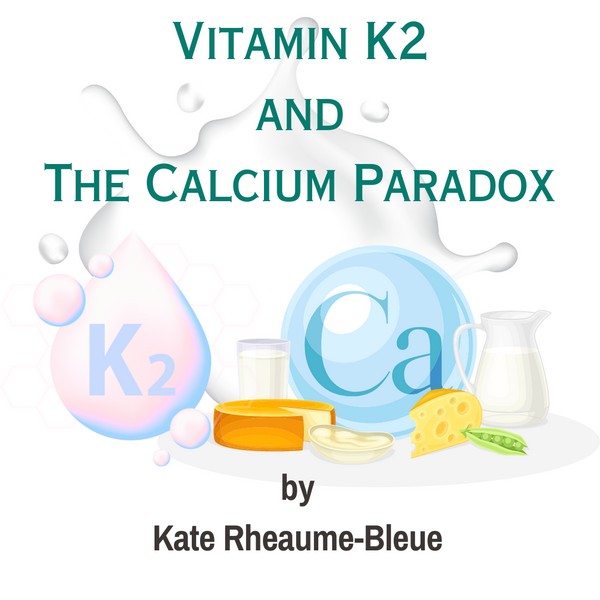Key Takeaways
- Boron is a trace mineral with significant health benefits.
- It supports brain function, bone health, and hormonal balance.
- Understanding boron’s role can improve overall wellbeing.
The Role of Boron in the Body
Energy

One of boron’s key functions is to help retain magnesium within cells. Magnesium is essential for many biological processes, but its most crucial role involves its conversion into magnesium-adenosine triphosphate (Mg-ATP).
Mg-ATP is the primary molecule that stores and transfers energy within cells, fueling various cellular activities and processes.
In essence, boron helps ensure that magnesium is available where it’s needed most, enabling the production of Mg-ATP and thereby supporting the energy needs of the cell.
This process is vital for maintaining cellular energy levels and overall metabolic health.
Brain Function
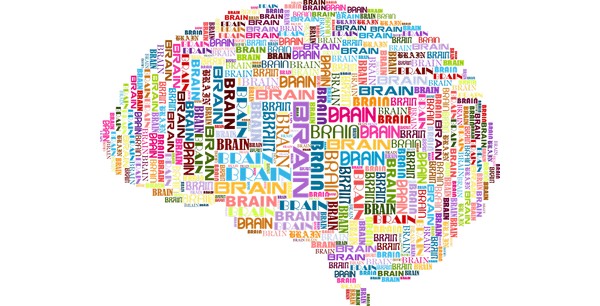
Boron significantly impacts cognitive function and mental clarity. Adequate boron intake can improve memory, focus, and mental agility.
Memory Enhancement: Boron supports the brain’s ability to process and retain information. Studies have shown that individuals with sufficient boron levels perform better in memory and cognitive tasks.
Mental Clarity: Boron helps maintain clear thinking and reduces mental fatigue. It supports neurotransmitter function, which is vital for quick and effective communication between brain cells.
Bone Health
Boron is important for maintaining strong and healthy bones. It improves magnesium absorption and balances magnesium and calcium levels, essential for bone density and strength.
Calcium Absorption: Boron helps the body retain calcium, reducing the risk of bone loss and osteoporosis.
Bone Strength: By aiding in the metabolism of minerals, boron ensures that bones remain strong and resilient.
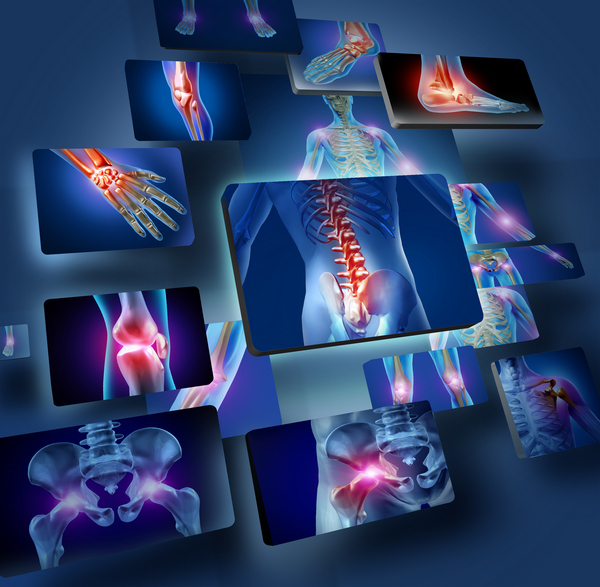
Hormonal Balance
Boron plays a role in regulating hormones, impacting various aspects of health, including reproductive health and energy levels.
Estrogen and Testosterone Regulation: Boron helps maintain balanced levels of estrogen and testosterone, which are crucial for both men and women.
This balance supports reproductive health, muscle mass, and energy levels.
Menopausal Symptoms: Boron may help alleviate symptoms of menopause by supporting hormonal balance.
Antioxidant and Antifungal Properties
Boron raises levels of antioxidant enzymes such as superoxide dismutase (SOD), catalase, and glutathione.
These enzymes thwart the pro-oxidant action of excess, unbound iron in the body, lowering oxidative stress in the liver and other organs.
This process reduces the drain on copper, an essential nutrient.
Boron also exhibits antifungal properties and has been found to inhibit Candida albicans, a common fungal pathogen.
Sources of Boron

Dietary Sources
Boron is found in various foods, making it relatively easy to include in a balanced diet.
Vegetables: Leafy greens, carrots, and legumes contain significant amounts of boron.
Nuts and Seeds: Almonds, walnuts, and sunflower seeds are excellent sources of boron.
Fruits: Apples, pears, grapes, and avocados are rich in boron.
Whole Grains: Foods like quinoa, oats, and brown rice contribute to boron intake.
Supplementation
Plant-based sources of boron may contain high carbohydrates, oxalates, or other undesirable chemicals. For those who may not get enough boron from their diet, supplements are available.
Consulting with a healthcare provider before starting any supplementation ensures it meets individual health needs.
Potential Risks and Considerations
While boron is beneficial, it is essential to consume it in appropriate amounts. Excessive intake can lead to toxicity and adverse health effects.
Recommended Dosage: The recommended daily intake of boron is a minimum of 3 mg per day, which has been shown to be beneficial for human health. Higher doses should only be taken under medical supervision.
Possible Side Effects: Overconsumption of boron can cause nausea, vomiting, and other digestive issues. Long-term high intake can lead to more severe health problems.
Conclusion
Boron is a vital trace mineral with numerous health benefits, particularly for brain function, bone health, and hormonal balance. Including boron-rich foods in your diet or considering supplementation, under professional guidance, can enhance overall wellbeing and support long-term health.
FAQs
What foods are high in boron?
Foods like apples, pears, grapes, avocados, leafy greens, carrots, almonds, walnuts, and whole grains are rich in boron.
How does boron improve brain function?
Boron supports cognitive functions like memory, focus, and mental clarity by aiding neurotransmitter function and reducing mental fatigue.
Can boron help with bone health?
Yes, boron improves the body’s ability to absorb calcium and magnesium, which are essential for maintaining strong and healthy bones.
Is boron supplementation safe?
Boron supplements are generally safe when taken within the recommended dosage. It’s important to consult with a healthcare provider before starting supplementation.
How does boron affect hormonal balance?
Boron helps regulate estrogen and testosterone levels, supporting reproductive health and alleviating symptoms of hormonal imbalances.
Research
Armstrong T. A., Spears J. W., Crenshaw T. D., Nielsen F. H., Boron supplementation of a semipurified diet for weanling pigs improves feed efficiency and bone strength characteristics and alters plasma lipid metabolites, J. Nutr., 139, 2575-2581, 2000.
Balci Yuce H., Toker H., Goze F., The histopathological and morphometric investigation of the effects of systemically administered boric acid on alveolar bone loss in ligature-induced periodontitis in diabetic rats, Acta Odontologica Scandinavica 72, 729-736, 2014.
Bolt, H.M., Başaran, N. and Duydu, Y., 2020. Effects of boron compounds on human reproduction. Archives of Toxicology, [online] 94(3), pp.717–724.
https://doi.org/10.1007/s00204-020-02700-x.
Dinca, L. and Scorei, R., 2013. Boron in human nutrition and its regulations use. J Nutr Ther, 2(1), pp.22-29.
Fort D. J., Rogers R. L., McLaughlin D. W., Sellers C. M., Schlekat C. L., Impact of boron deficiency on Xenopus laevis, A summary of biological effects and potential biochemical roles, Biol. Trace Elem. Res., 90, 117-142, 2002.
Gorustovich A. A., Steimetz T., Nielsen F. H., Guglielmotti M. B., Histomorphometric study of alveolar bone healing in rats fed a boron-deficient diet, Anatomical Record (Hoboken), 291, 441-447, 2008.
Gorustovich A. A., Steimetz T., Nielsen F. H., Guglielmotti M. B., A histomorphometric study of alveolar bone modeling and remodeling in mice fed a boron-deficient diet, Archives of Oral Biology, 53,677-682, 2008.
Hakki S. S., Bozkurt B. S., Hakki E. E., Boron regulates mineralized tissue-associated proteins in osteoblasts (MC3T3-E1), J. Trace Elem. Med. Biol., 24, 243-250, 2010.
Hakki S. S., Malkoc S., Dundar N., Kayis S.A., Hakki E. E., Hamurcu M., Baspinar N., Basoglu A., Nielsen F. H., Götz W., Dietary boron does not affect tooth strength, micro-hardness, and density, but affects tooth mineral composition and alveolar bone mineral density in rabbits fed a high-energy diet, J. Trace Elem. Med. Biol., 29, 208-215, 2015.
Hosmane, N.S., 2011. Boron science. New technologies and applications.
Hunt C. D., Herbel J. L., Idso J. P., Dietary boron modifies the effects of vitamin D3 nutriture on indices of energy substrate utilization and mineral metabolism in the chick, J. Bone Miner. Res., 9, 171-181, 1994.
Hunt C. D., Nielsen F. H., Interaction between boron and cholecalciferol in the chick, Trace Elements Metabolism in Man and Animals, TENA-4, Australian Academy of Science, Canberra, Australia, pp. 597-600, 1981.
Hunt C. D., Dietary boron: Evidence for essentiality and homeostatic control in humans and animals, Advances in Plant and Animal Boron Nutrition, Springer, Dordrecht, The Netherlands, pp. 251-267, 2007.
Ince, S., Filazi, A., & Yurdakok-Dikmen, B. 2022. Boron. Reproductive and Developmental Toxicology (Third Edition), 531-546.
https://doi.org/10.1016/B978-0-323-89773-0.00028-X
Khaliq, H., Juming, Z. and Ke-Mei, P., 2018. The Physiological Role of Boron on Health. Biological Trace Element Research, [online] 186(1), pp.31–51.
https://doi.org/10.1007/s12011-018-1284-3.
Kot, F.S., 2008. Boron sources, speciation and its potential impact on health. Reviews in Environmental Science and Bio/Technology, [online] 8(1), pp.3–28.
https://doi.org/10.1007/s11157-008-9140-0.
Majafabadi B. M., Abnosi M. H., Boron induces early matrix mineralization via calcium deposition and elevation of alkaline phosphatase activity in differentiated rat bone marrow mesenchymal stem cells, Cell Journal (Yakhteh), 18, 62-73, 2016.
Nielsen, F. H., Dietary fat composition modifies the effect of boron on bone characteristics and plasma lipids in rats, BioFactors, 20, 161-171, 2004.
Nielsen, F. H., 2014. Update on human health effects of boron. Journal of Trace Elements in Medicine and Biology, 28(4), 383-387.
https://doi.org/10.1016/j.jtemb.2014.06.023
Nielsen, F. H., 2020. Manganese, molybdenum, boron, silicon, and other trace elements. In Present knowledge in nutrition (pp. 485-500). Academic Press.
Nielsen, F. H., and Eckhert, C.D., 2020. Boron. Advances in Nutrition, [online] 11(2), pp.461–462.
https://doi.org/10.1093/advances/nmz110.
Nielsen, F. H., and Meacham, S.L., 2011. Growing Evidence for Human Health Benefits of Boron. Journal of Evidence-Based Complementary & Alternative Medicine, [online] 16(3), pp.169–180.
https://www.ncbi.nlm.nih.gov/pmc/articles/PMC4712861/
Pizzorno, L., 2015. Nothing boring about boron. Integrative Medicine: A Clinician's Journal, 14(4), p.35.
https://www.ncbi.nlm.nih.gov/pmc/articles/PMC4712861/
Rowe R. I., Eckhert C. D., Boron is required for zebrafish embryogenesis, J. Exp. Biol., 12, 221-233, 1999.
Sağlam M., Hatipoğlu M., Köseoğlu S., Esen H. H., Kelebek S., Boric acid inhibits alveolar bone loss in rats by affecting RANKL and osteoprotegerin expression, Journal of Periodontal Research, 49, 472-479, 2014.
Sutherland, B., Woodhouse, L. R., Strong, P., & King, J. C. (1999). Boron balance in humans. The Journal of Trace Elements in Experimental Medicine, 12(3), 271-284.
https://doi.org/10.1002/(SICI)1520-670X(1999)12:3<271::AID-JTRA10>3.0.CO;2-B
Taşh P. N., Doğan A., Demirci S., Şahin F., Boron enhances odontogenic and osteogenic differentiation of human tooth germ stem cells (hTGSCs) in vitro, Biol. Trace Elem. Res., 153, 419-427, 2013.
Ying X., Cheng S., Wang W., Lin Z., Chen Q., Zhang W., Kou D., Shen Y., Cheng X., Rompis F.A., Peng L., Lu C.Z., Effect of boron on osteogenic differentiation of human bone marrow stromal cells, Biol. Trace Elem. Res., 144, 306-315, 2011.
Creatine Myths Debunked: Separating Fact from Fiction
Key Takeaways Common myths about creatine, such as it causing kidney damage, weight gain, and being a steroid, are widespread but unsupported by scientific evidence….
Copper: Little-Known Health Benefits
Key Takeaways Copper is an essential trace mineral with benefits, including ceruloplasmin production, energy production and antioxidant properties. Copper is critical for brain health by…
Natural Treatment for Irritable Bowel Syndrome (IBS): Effective Remedies Explored
Understanding IBSSymptoms of IBSRole of Diet in IBSNatural Remedies for IBSSupplements for IBSRole of Probiotics in IBSFrequently Asked Questions Understanding IBS Irritable Bowel Syndrome (IBS)…
11 Electrifying Health Benefits of Trace Minerals
What are Trace Minerals?The Major Roles of Trace MineralsSources of Trace MineralsDeficiencies in Trace MineralsThe Impact of Trace Minerals on Specific Health ConditionsFrequently Asked Questions…
Cholesterol Misconceptions: Separating Fact from Fiction
Key Takeaways: High inflammation and blood pressure are major risk factors for heart disease. Cholesterol is vital for hormone production, cell membrane structure, and digestion,…
Increase GLP-1 Agonists Naturally
Protein: You probably need more
Key Takeaways Protein is needed for building and repairing body tissues. It supports muscle growth, immune function, and hormone production. Bioavailable sources of protein include…
What You Need to Know About Salt and Your Health
Table of ContentsThe Health Benefits of Unrefined Sea SaltElectrolyte BalanceMineral ContentImproved HydrationBoosted Energy LevelsImmune SupportImproved DigestionBalanced pH LevelsReduced Water RetentionHeart Health SupportStronger Bones and TeethEnhanced…
Magnesium: Better Sleep, Stress Relief and More
Allulose: The Best Sugar Alternative
Key Takeaways Allulose is a low-calorie sweetener found naturally in some fruits. It does not raise blood sugar levels, making it suitable for diabetics. Allulose…
Zinc Supplements: Risks and Dangers
Key Takeaways Zinc supports immunity, wound healing, and cell growth. High zinc supplement doses can cause health problems. Always consult a healthcare provider before taking…
Tallow: Benefits, Uses, and Nutrition
Key Takeaways: Tallow is a nutrient-rich animal fat with many practical uses. It contains valuable vitamins such as A, D, E, and K. Tallow is…
Benefits of Sea Moss Explained
Key Takeaways Rich in Nutrients: Sea moss is packed with essential vitamins, minerals, and antioxidants, supporting overall health and wellness. Supports Immune Function: Its high…
6 Best Natural Ways to Manage Your Blood Sugar: A Quick & Easy Guide
1. Intermittent fasting2. Exercise3. Dietary fiber4. Sleep5. Weight loss6. SupplementationBioclinic NaturalsPGX BiotiquestSugar Shift Every time you eat it, it’s plotting something sinister. Sugar isn’t as…
Berberine Has 11 More Incredible Benefits Than You Thought
Berberine is a compound found in several plants that has been used for centuries in traditional Chinese medicine and Ayurveda. It has recently gained popularity…
Silica: for Healthier Skin, Hair, and Nails
Is Eating Sugar Really That Bad For Your Health?
Should You Really Be Concerned? In short, YES! Thank you, that’s all folks, and do have a good evening. Seriously though, extensive research has established…
Potassium: Benefits & Sources
Key Takeaways Potassium is essential for regulating fluid balance, nerve signals, and muscle function. It supports heart health and helps maintain proper blood pressure. Adequate…
Grains & Legumes Secretly Harming Your Health? Find Out Now!
Key Takeaways: – Grains and legumes contain antinutrients like lectins and phytic acid, which can interfere with nutrient absorption. – These foods may trigger digestive…
How Collagen Supports Healthy Skin, Joints, and More
Key Takeaways Collagen is the most abundant protein in the body, supporting the structure of skin, bones, and connective tissues. It helps maintain skin elasticity,…
How Stabilized Rice Bran Supports Digestive & Heart Health
Key Takeaways – Stabilized rice bran is a nutrient-rich source of vitamins, minerals, and antioxidants. – The stabilization process prevents rancidity, making it a long-lasting…
Conjugated Linoleic Acid (CLA): Benefits & Sources
Key Takeaways CLA is a type of fatty acid found primarily in animal products like beef and dairy. Known for potential benefits such as weight…
Keto Diet 101: A Complete Beginner’s Guide
Key Highlights The ketogenic diet is a low-carb, high-fat diet that can lead to weight loss and has many health benefits. By reducing carbohydrate intake…
5 Major Benefits of Omega-3 Fatty Acids
Key Takeaways Omega-3 fatty acids support heart health by reducing triglycerides and lowering blood pressure. They play an important role in brain function and development,…
Carnivore Diet: Benefits, Risks, Food List & More
Key Takeaways The carnivore diet is a keto diet that only allows for animal-based foods, and has potential health benefits. Tips for success include hydrating,…
Medium Chain Triglycerides (MCTs): Uncovering 5 Health Benefits
This potent, natural source of energy has gained considerable attention in recent years for its impressive array of benefits. MCT oil is a versatile addition…
CoQ10: What Is It and Why Is It Important?
Key Takeaways CoQ10 (Coenzyme Q10) is an antioxidant produced by the body, essential for energy production in cells. Levels of CoQ10 naturally decrease with age…
Whole Food Vitamin C Complex: Expert Tips for Health
Key Highlights Whole food vitamin C complex is essential for a strong immune system and overall health. Unlike synthetic ascorbic acid, whole food vitamin C…
Trimethylglycine TMG: Betaine Anhydrous Explained
Key Takeaways Betaine Anhydrous (TMG) is a compound found naturally in various foods and offers several health benefits. TMG supports liver health by reducing fatty…
Liver: 5 Surprising Benefits Backed by Science
Hold on! Don’t run away! You need to read this. Liver is a highly nutritious organ meat that is often overlooked in modern diets. Packed…
How Cod Liver Oil Can Transform Your Health and Wellness
Cod liver oil has been used for centuries as a natural remedy for various health conditions. Packed with essential nutrients and fatty acids, cod liver…
Calcium Supplements: What You Need to Know
Key Takeaways Calcium supplements have been linked to heart disease and kidney stones. Excess calcium from supplements can lead to imbalances and health issues. Natural…
ALA vs. DHA & EPA Omega-3: Why Source Matters
Key Takeaways ALA (Alpha-Linolenic Acid) is found in flaxseeds, chia seeds, and walnuts, but converts poorly to DHA and EPA. DHA and EPA are critical…
TUDCA Benefits for Health
Key Takeaways TUDCA promotes liver health, aiding cell protection and repair. Enhances digestion by improving bile flow and supporting gut health. May protect brain health…
Vitamin E Complex
Key Takeaways Vitamin E is a powerful antioxidant that protects cells from oxidative damage, reducing the risk of chronic diseases. The vitamin E complex includes…
L-Glutamine and Gut Health: Benefits and Side Effects
Key Takeaways L-Glutamine is essential for gut health. Benefits include improved digestion and reduced inflammation. Potential side effects are rare but can occur in high…
Taurine: The Mighty Amino Acid for Optimal Health
Key Takeaways Taurine supports heart health, regulates blood pressure, and reduces oxidative stress. Essential for muscle function, brain health, and cognitive function. Aids in insulin…
Actual Superfoods: Real Foods You Should Be Eating
Key Takeaways Superfoods are nutrient-dense foods, offering essential vitamins, minerals, and fats. Prioritize high-quality sources for optimal nutrition. They support overall health, boost energy, and…
Postbiotics: What They Are and Why They Are Important
Key Takeaways Postbiotics 101: They’re beneficial by-products from probiotics that consume prebiotics Boosts Immunity: Postbiotics sharpen your immune system, helping fight off pathogens and reducing…
Vitamin A (Retinol): Essential Nutrient for Health
Key Takeaways: Natural Vitamin A, also known as Retinol, is crucial for vision, immune function, and skin health. Retinol is essential for healthy vision, particularly…
Iron Overload: Symptoms & Prevention Tips
Key Takeaways: Iron overload happens when the body absorbs excessive iron, which can damage organs. Common symptoms include fatigue, joint pain, and skin changes. Early…
L-Carnitine: Benefits, Dosage, and Side Effects
Key Takeaways L-Carnitine supports fat metabolism and energy production. Benefits include enhanced exercise performance and improved heart health. Proper dosing minimizes potential side effects. Understanding…
13 Most Dangerous Foods Revealed
Key Highlights Fugu, or pufferfish, is one of the most poisonous foods in the world, with its organs containing a neurotoxin that can paralyze motor…
The Impact of Ultra-Processed Foods on Your Wellbeing
Every bite we take is a step toward either wellness or illness. In our fast-paced world, ultra-processed foods have become a staple, silently shaping our…
Benefits of Nutritional Yeast
Key Takeaways Nutritional yeast is a rich source of vitamins and minerals. It supports immune function and promotes skin health. Its cheesy flavor makes it…
Red Palm Oil: Unveiling The Potent Health Benefits
Struggling to find the right oil for your health and kitchen? Red palm oil is packed with nutrients that might just be what you need….
8 Key Signs of Nutrient Deficiency
Key Takeaways Magnesium: A multitasker that aids in over 300 biochemical reactions in the body. Copper: Supports neurological function, cardiovascular and immune system health, iron…
Bee Pollen: Nature’s Secret Superfood
Key Takeaways Bee pollen is packed with essential nutrients and offers numerous health benefits. It supports immune function, boosts energy, and promotes overall well-being. Adding…
Spirulina: Health Benefits and Uses
Key Takeaways Spirulina boosts immune function with its high nutrient content and antioxidant properties. Rich in proteins and essential vitamins, enhances overall nutrition. Helps reduce…
Eggs: A Comprehensive Guide
Key Highlights Eggs are a nutritional powerhouse, containing all the essential vitamins and minerals needed for overall health. Vital role in a balanced diet, providing…
Healthy Fat: is Butter Better?
Key Takeaways Saturated fats, like those found in butter, may not be as harmful as once thought and can be part of a healthy diet….
5-HTP: Natural Ways to Boost Serotonin and Improve Mood
Key Takeaways: 5-HTP is a natural compound that helps boost serotonin levels in the brain. It can support mood regulation, sleep improvement, and stress reduction….
Do This! The Ultimate Guide to Fasting Safely and Effectively
In our increasingly busy lives, finding time to take care of our bodies can often take a backseat. One method that has gained attention recently…
